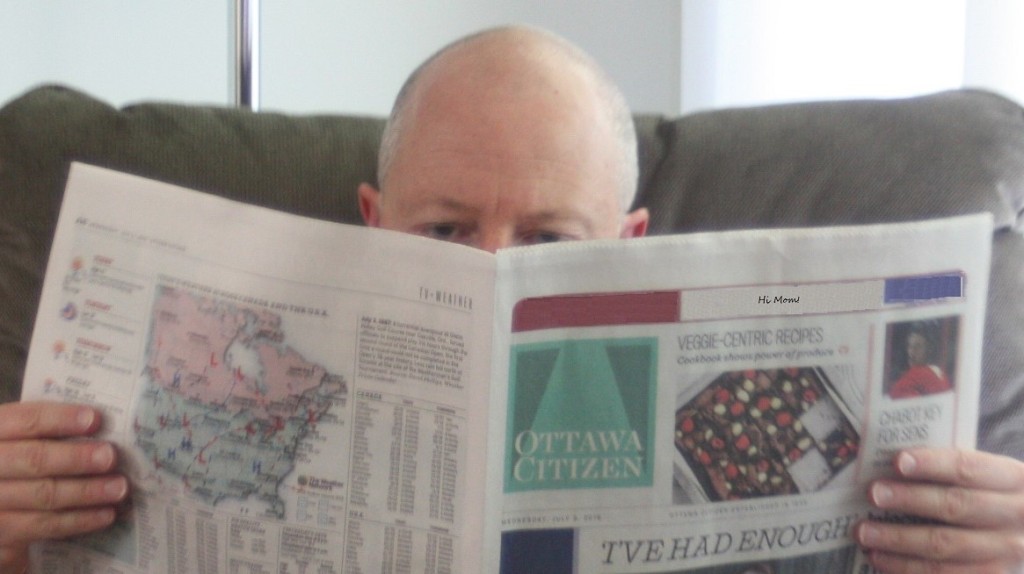
Before retiring from my public sector career, I knew what my retirement dream was.
I looked forward to finally having the time to commit to paper a lifetime of ideas, plots and characters.
But I often heard, why put off until tomorrow what you can do today? Why wait until retirement?
The answer was a pretty simple one: at the end of most work days, I was tapped out.
I was so fortunate that my career offered me the opportunity to create, to write, to proofread and to edit a variety of documents.
That was my choice. I made it and I stood by it, as it offered me the gift of thirty years of challenging emails, memos, presentations and user manuals.
What was most rewarding was that in writing for different target audiences and on behalf of a variety of executives with differing styles and approaches, my creative muscles were stretched like Silly Putty in multiple directions. I couldn’t have asked for better training in writing.
Even toward the end of my career, I was still learning and I still had moments when the word nerd in me got goose bumps when a finished product came together really nicely.
In preparing to pass the baton, I produced a Standard Operating Procedure in under two hours that brought me a huge sense of satisfaction for having downloaded knowledge into a living document that will be used by my colleagues for years to come.
But at the end of the day, while in heavy production of the written word and often within short deadlines, as much as I loved every moment of the process, there wasn’t much writing energy to spare for personal projects.
On numerous occasions over the span of my career, I have tried to commit to myself to personal writing quotas or goals, whether that was 1000 words, 500 words, an hour, or even just half an hour. Sometimes it worked and sometimes it didn’t.
The times that those goals worked were usually preceded by work days where I felt like I was using a different part of the brain, whether that was number crunching, problem solving or attending meetings.
But the days when I was wearing the writer hat all day, it was a challenge to keep the writing momentum going after more than eight consecutive hours… at least for me it was. Even if I did persevere, would it be quality work?
I recall a time when there was a 150 page bilingual document that needed proofreading on a short deadline. By blocking out interruptions and having the quiet time I needed, I was able to get the continuity, flow and momentum to increase my revision speed. But at the end of an intense first day, as much as I was euphoric with what I accomplished, my brain was very tired.
I believe that it would have been a mistake to work on my own creative projects that night, if I needed to wake up refreshed and to remain vigilant to continue proofreading the next day.
I am not suggesting for a moment that setting writing quotas or goals are a bad thing.
In fact, in retirement, I am indeed setting daily writing goals for myself. Also, if I was on contract to a publisher to deliver a written product by a certain date, then you better believe that I’d be working on a daily quota system to ensure I meet my target.
I am just suggesting that we shouldn’t feel pressured or discouraged if much (or most) of our writing energy is needed for the day jobs that put food on the table and a roof over our heads.
For that reason, I have been careful in not committing to writing projects outside of my career or my weekly blog. My goal was to ensure I maintained my creative energy to deliver my best work at the office.
We all have so many responsibilities, sometimes conflicting ones, which are draining on our creative energy.
When that happens, sometimes writing quotas are a great solution to keep us on track.
Other times, we just need to be patient and to ride out the busy periods until the time is right. The bright side is that during that time, characters, plots and ideas have a chance to take root in our minds and to mature, which can sometimes be as beneficial as the actual writing itself.
Either way, we shouldn’t feel guilty when life’s demands get in the way.
Personal writing goals and quotas are indeed fantastic tools. To use them effectively, we need to be aware of the demands placed on our creative energy, to determine how much creative energy we have left to spare, and then to incorporate a goal to make the best use of that energy.
Did you enjoy this post? If you did, your likes and shares are most appreciated.
If you haven’t already, please check out the rest of my blog at andrebegin.blog. From there, you can click on the “Follow” button to receive future posts directly in your inbox.
Sincere thanks for reading!
Have a great day,
André








Leave a comment